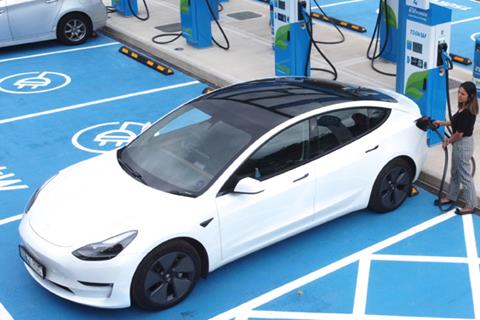
The Motor Fuel Group has said that supplying auto-LPG is no longer commercially viable. The company plans to remove auto-LPG from all its UK forecourts by 2024.
MFG had to announce its plans through the Competition and Markets Authority (CMA) because of the preliminary investigation by the CMA into the purchase of Morrisons Supermarkets and forecourts by MFG’s US private equity owners.
The CMA reported that “MFG submits that auto-LPG is no longer an important product category for modern petrol station forecourt businesses due to a continued industry-wide decrease in demand.
This decrease in demand means that revenues are low and will continue to decline, thereby making any continued investments, including periodic testing of the facilities, commercially unviable. Accordingly, MFG plans to remove auto-LPG from all of its sites between 2022 and 2024.”
MFG intends to replace its auto-LPG facilities with Electric Vehicle rapid charging hubs and other services, such as grocery offerings or car wash facilities. MFG currently has over 200 150kW chargers on its sites and has plans to electrify its network of over 900 forecourts.
The decision by MFG follows Shell’s decision two years ago to end its joint venture with Calor and decommission its LPG refuelling network.
At the time, a spokesperson for the joint venture said, “Customer demand for LPG for domestic transportation has declined due to changing customer preferences and the increasing availability of other lower-carbon fuels.”
Over 1,000 sites in the UK still stock auto-LPG, but it only makes up around 0.2% of UK road fuel demand. Estimates of the number of LPG fuelled vehicles on UK roads are around 100,000.
The UK government will phase out the sale of new vehicles powered by autogas. No manufacturers sell pure auto-LPG vehicles in the UK, which means the only way to use it is to convert an engine or install an LPG engine to work in a bi-fuel system.